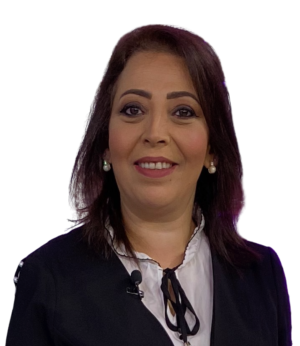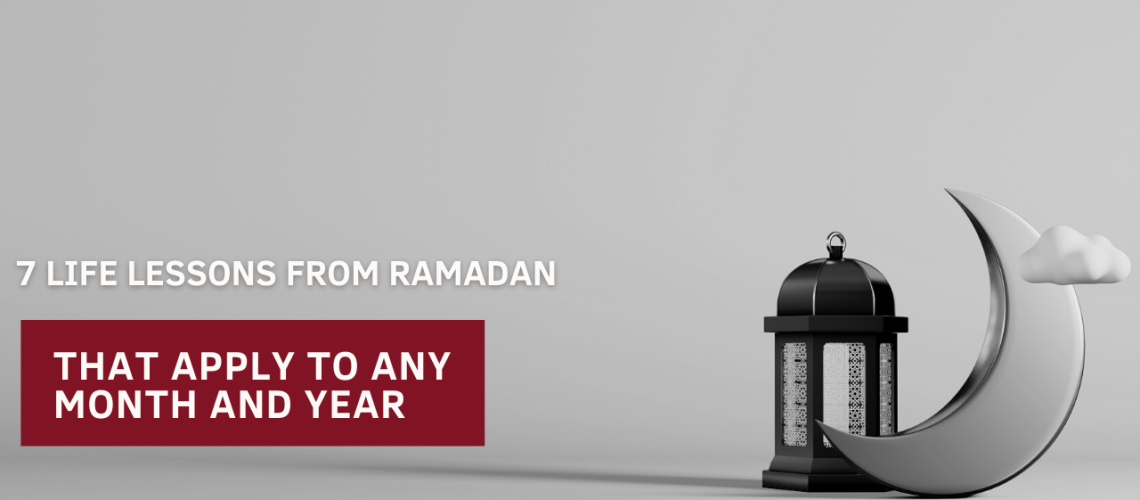
The holy month of Ramadan is a time for to concentrate on spiritual life and focus on self-improvement. At Wide Impact, we counsel and guide our customers on all matters related to culture, diversity, and its challenges. We have conducted tailored sessions, webinars and training courses on religious tolerance including Ramadan events.
If you’d like to know more about our services, please contact us at info@wide-impact.com
Ramadan is an important month for Muslims around the world. It’s a month of reflection, prayer, and fasting from sunrise to sunset. But there are lessons to learn from this special time that go beyond just religious observance. From self-care to community building and even financial advice, there’s something for everyone to take away from this holy month. Read on as we explore some of the most important lessons that can be learned from Ramadan and how they can help us all in our day-to-day lives.
1- Ramadan Is A Month Of Self-Control.
It’s a month in which we practice self-control over what is permissible, let alone what is forbidden.
We fast during daylight hours and then break the fast at sunset. We refrain from eating, drinking, smoking, and other activity during the day.
For psychologists, the key to changing your behavior is repetition. In order for any change to become part of a person’s life, it must be repeated over and over again—and Ramadan consists of 29 or 30 days in which the individual is trained to exercise self-control over what is permissible, let alone what is forbidden.
Ramadan can be an opportunity to practice self-control in other areas of your life as well. You can use this time to cut back on your over spending or give up smoking or any other bad habit. Make this month count by using it as an opportunity to improve yourself!
2- Ramadan Is A Time For Change.
It is a time to break out of the ordinary, by changing the usual daily routine and learning the importance of change, both in our lives and within our organizations.
If what we offer does not change, the results we obtain will not change. What we produce today will not be as good as what we produce tomorrow.
Ramadan is a time for change. At Wide Impact, we believe that Change and innovation is important because it allows us to adapt to new needs and trends while staying true to ourselves and our values. That’s why we take Ramadan as an opportunity to reflect on our values, re-evaluate our practices, and discover how we can improve our business and the lives of our employees.
3- Will Power
Fasting is a way of training your willpower.
We all know that fasting is a way to train our willpower, but what does this mean?
It means that by fasting, we are able to overcome the temptation and temptations that surround us. When we see food or drink, we feel a strong desire to eat and drink it. But with willpower, we are able to resist these temptations and abstain from eating or drinking for many days. In fact, it is possible to overcome these desires and stop eating for many days.
This ability is an important skill in life because it helps us solve many problems. For example, if someone asks you whether you can do something difficult, such as working in an office full of sweets or staying awake all night without sleeping, then your answer will be yes if you have trained your willpower during fasting periods.
4- Positive In Dealing
If you want to succeed, you have to be positive.
Fasting is the elixir of success. It teaches us how to deal with things in a positive way and how not to let a negative thing affect our lives. It also teaches us good manners and how to be respectful towards others even when they’re harsh or abusive towards us.
In our daily lives, we often encounter situations in which we may be attacked by others—to harsh criticism, perhaps abuse from others—and it’s easy to get caught up in the negativity and let it drag us down. But fasting makes us think about our actions and reminds us that we’re only hurting ourselves if we give up on our goals just because someone has said something mean or hurtful about them.
5- An Opportunity To Practice Good Manners And Respect Towards Others.
We can’t always control what other people do, but we can control how we react to them. When we’re faced with harsh or abusive people, it’s easy to give up on being kind and respectful. But fasting helps us remember that even when people are cruel or difficult, we don’t have to stoop down to their level. We can rise above them by showing them love and kindness anyway.
After all, Ramadan isn’t just about abstaining from food; it’s also about abstaining from selfishness and greed, which means not getting caught up in the drama of other people’s lives—or the drama they try to create in ours! Fasting helps us focus on our own spiritual growth instead of worrying about what other people think of us or what they’re doing wrong (or right).
6- Patience
Ramadan is a month of patience.
We fast for the sake of Allah, and we make it through the day by being patient with hunger and thirst. We learn how to be patient with ourselves, how to endure hunger and thirst without running out into the street and buying ourselves a snack. We have patience with our families, friends, colleagues, and everyone else around us who is fasting as well.
But this isn’t just about enduring hunger and thirst—we also have to be patient with ourselves while we’re fasting! If we don’t eat or drink until sunset, then we’ve failed in our fast. So we need patience not only with others but also with ourselves.
7- Time Management
Ramadan is all about learning to manage your time. It’s a time when you’re supposed to be mindful of how you spend your day, and it’s a good time to build that mindfulness into a habit.
Ramadan is not just about fasting—it’s about being aware of your schedule, so that you can plan ahead for what needs to get done. You might want to focus on getting enough sleep, or making sure that you have time for prayer and reflection at certain points in the day. You might want to make sure that you aren’t spending too much time on social media; instead, try focusing on reading or other activities that will help you grow as a person.
Ramadan isn’t just about fasting; it’s also about being more organized in general. When we’re more organized, it makes it easier for us to accomplish our goals!
In Conclusion…Ramadan is a special time of year, full of spiritual growth and personal development. We hope that these lessons have inspired you to reflect on your own journey and find ways to become a better version of yourself this Ramadan season. Whether it’s spending more time in prayer, practicing self-discipline, or being more generous with your wealth—all are great values that can be taken away from the holy month. May Allah accept all our efforts during this blessed month and grant us His mercy!
This article was written by By Dr. Salam Slim Saad; the Training Manager of Wide Impact and a Visiting Professor. An executive Consultant, speaker & trainer professional with over 25 years of experience, Dr. Saad has been speaking, writing and facilitating workshops about professionalism, leadership, soft skills and corporate civility for over a decade.


